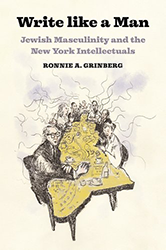The fiftieth anniversary of Freedom Summer in 2014 was the cause for broadcasts and reunions that brought many participants out of obscurity. Simone Zelitch’s novel Waveland: One Woman’s Story of Freedom Summer is based on the narrative of the Mississippi Freedom Project, in which about 1,000 mostly white, mostly middle class college-age volunteers (many of whom were Jewish) went to the Magnolia State in 1964. Their mission was to register blacks to vote and run Freedom Schools.
Archival documents and newspaper clippings from the Freedom Summer show idealistic young people sweating through starched blouses in makeshift schools and walking door-to-door registering potential voters, many of whom were sharecroppers and domestic workers living in shacks. Waveland, Mississippi was one of the towns in which Freedom Summer volunteers did their good work. In the eponymous novel, Jewish protagonist Beth Fine must convince her cold, academic father that participating in the Mississippi Summer Project is a good idea. A local Mississippian enchants Beth and draws her into the project, but things do not go well for Zelitch’s protagonist.
Simone Zelitch captures the discipline, passion, and confusion of the civil rights movement of the early 1960s that pushed for justice by building a civic and open society. At first Beth does everything wrong — hitting a cow, shooting at an intruder in a nonviolent movement, and rousing rumors in the small town — but her character changes and grows over time.The portrayals of snobbish Northern Jews, misunderstood Jewish Southerners, and “good ole boys” show the social complexities of 1964. Beth’s interracial romantic relationship seems doomed. She leaves then returns to the movement. She lingers on even when whites are banned from SNCC. The novel takes readers to the dramatic Democratic National Convention, where idealistic members of the Freedom Democratic Party negotiate for seats on the floor.
Waveland examines the role of women in the movement and in our society as well as interracial relations and identity. The novel is both a good read and an interesting examination of identity and what is it to be an American. Historical resources on Freedom Summer at the end of the book provide resources for readers hungry for more.
Dina Weinstein is a Richmond, Virginia-based writer.



